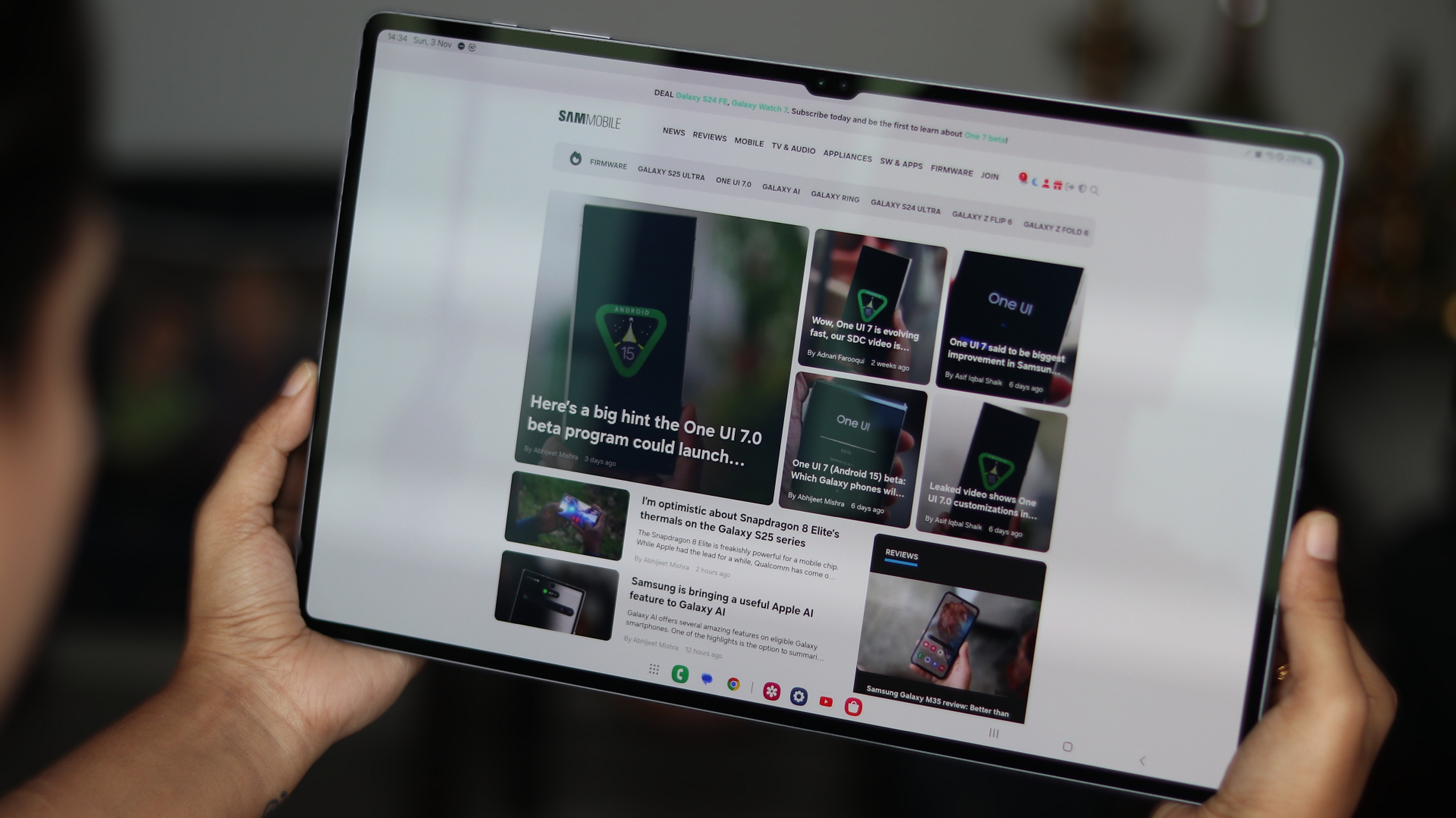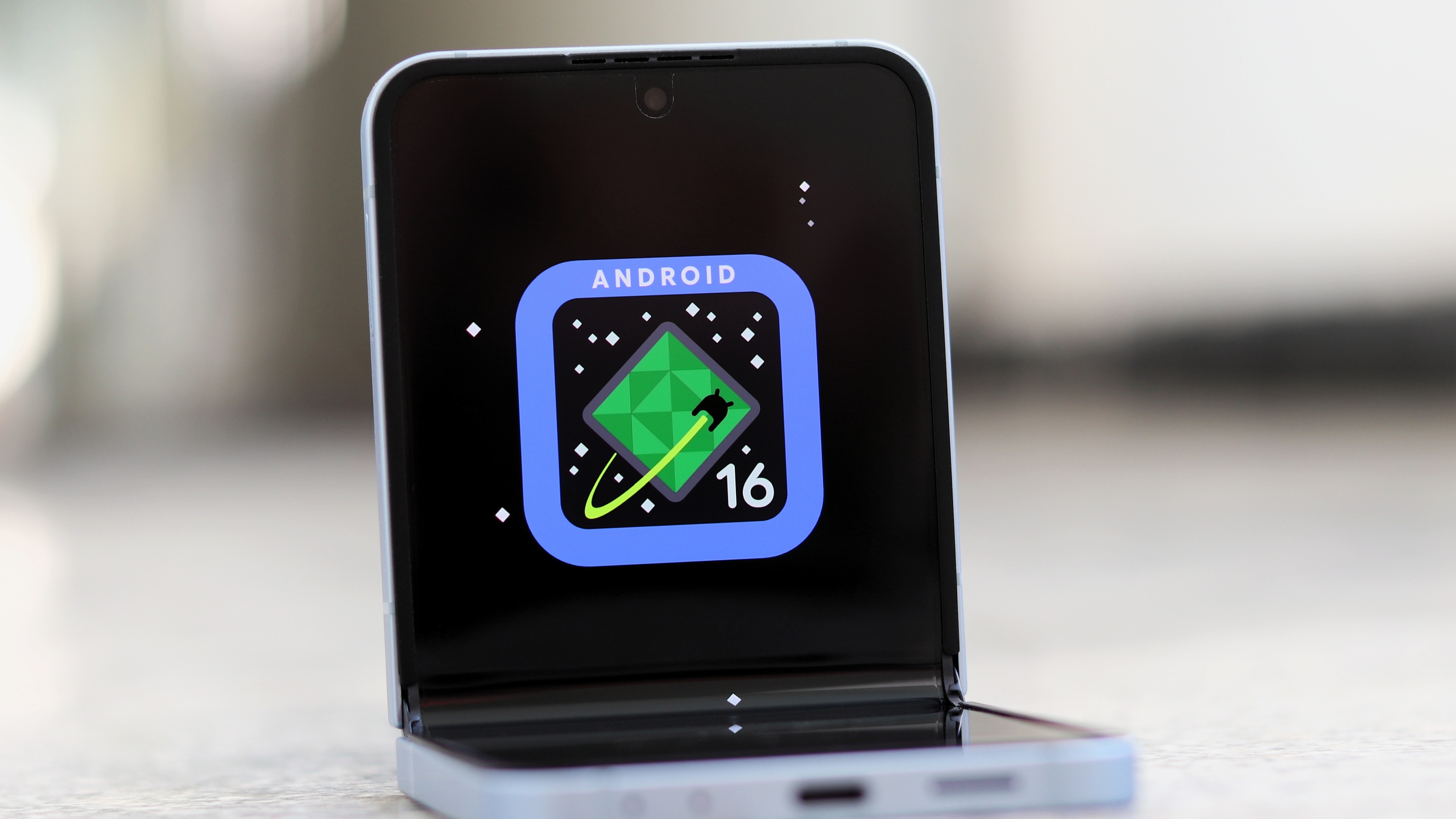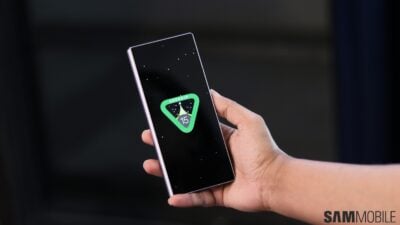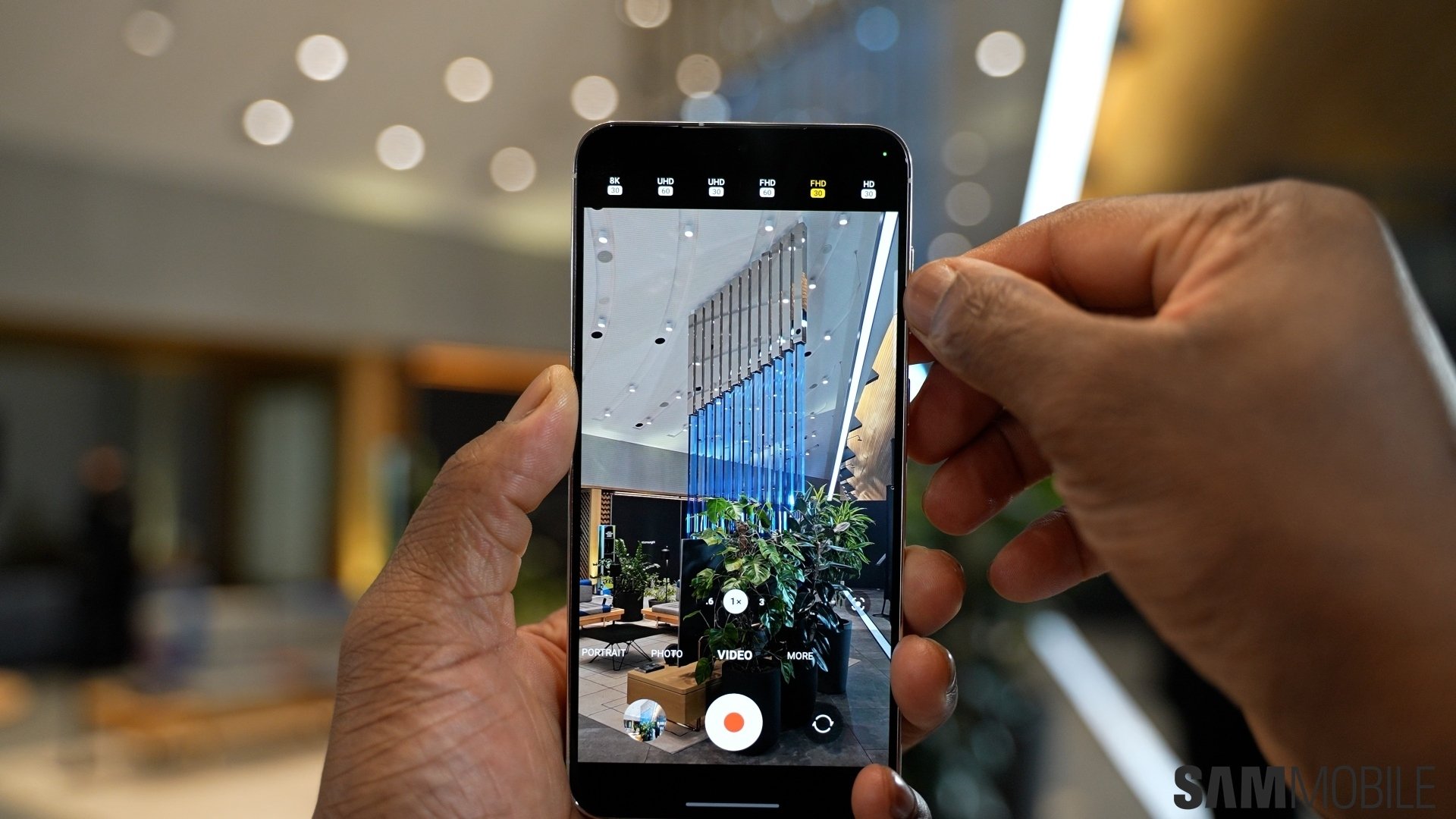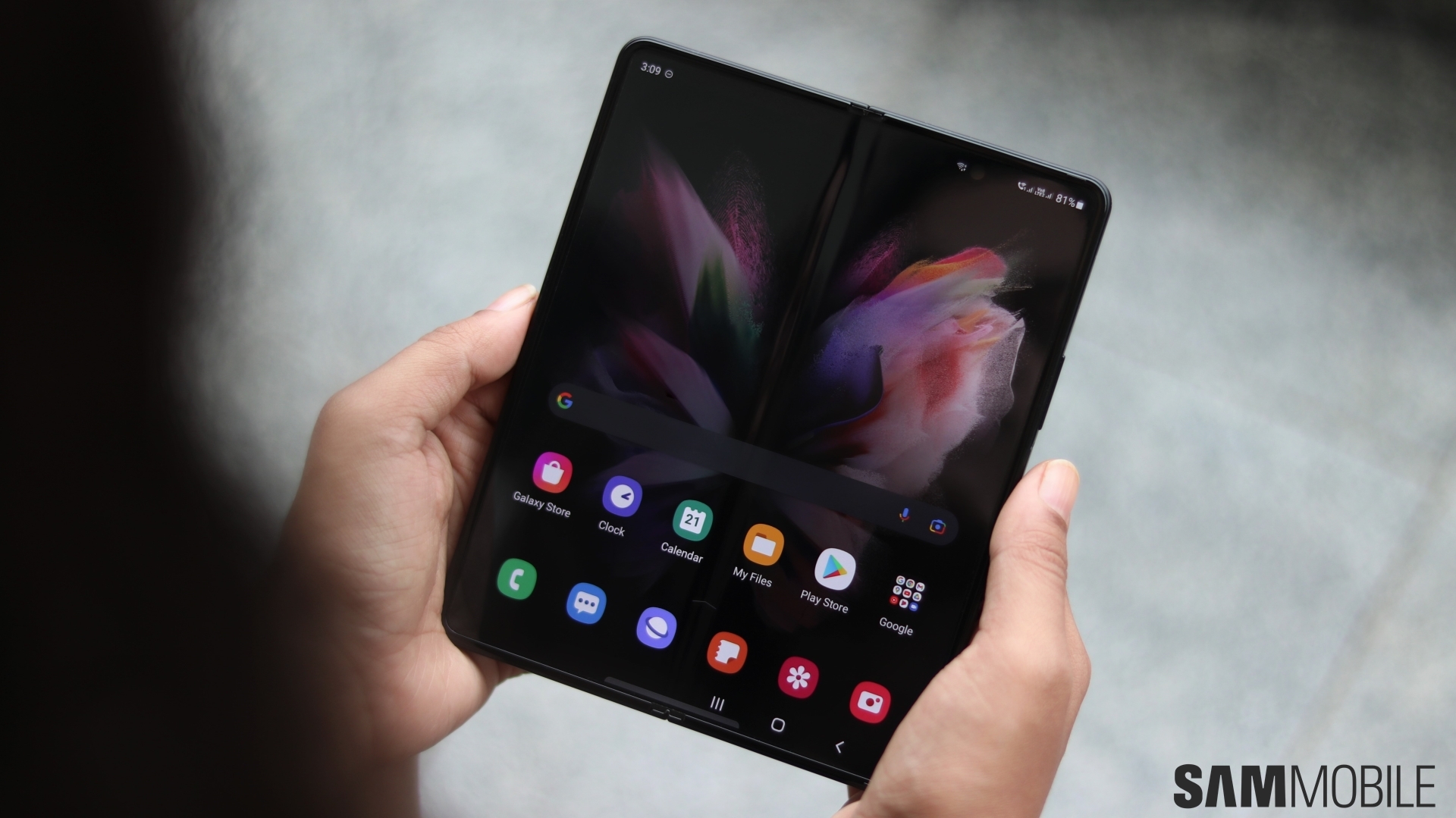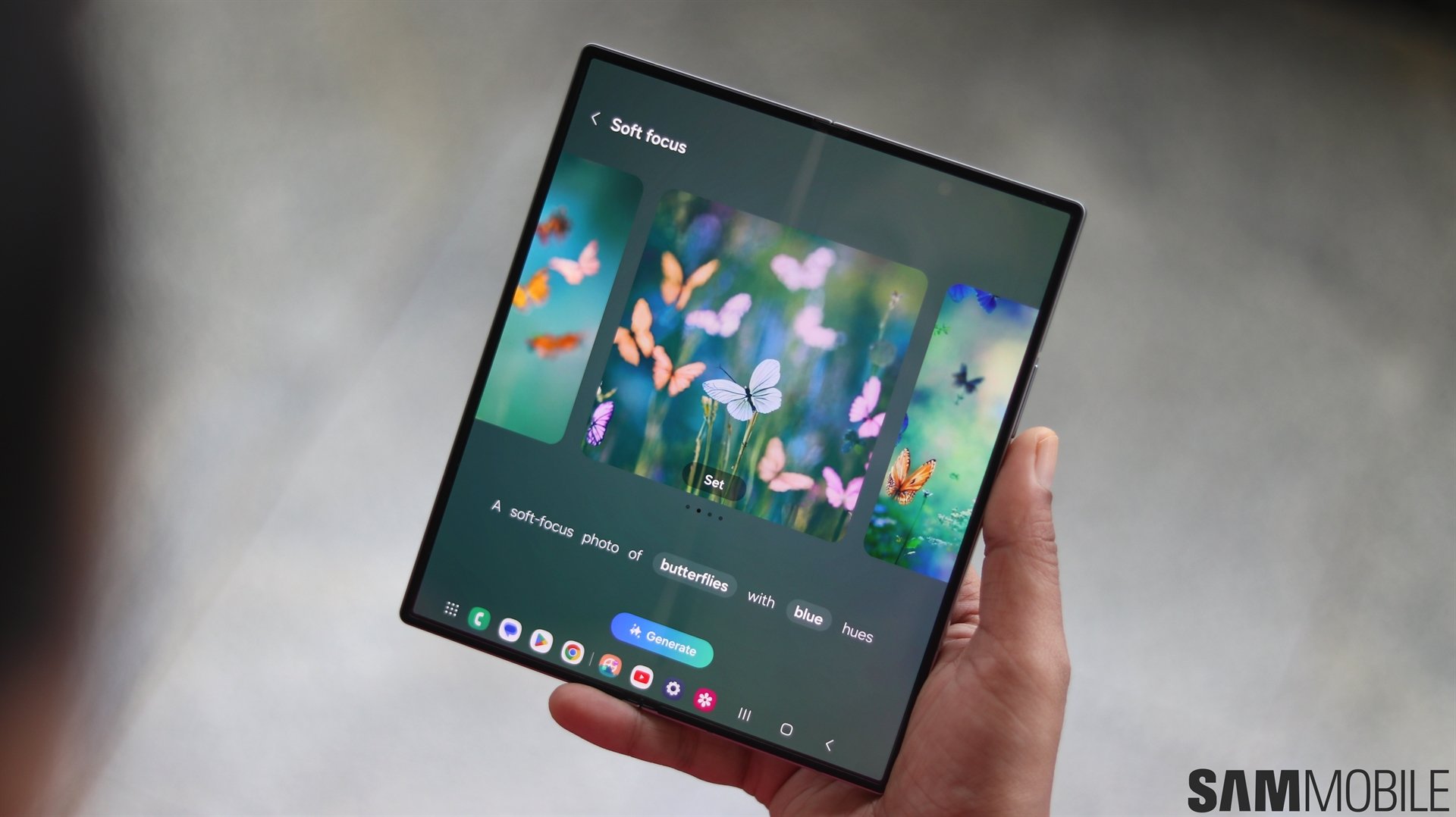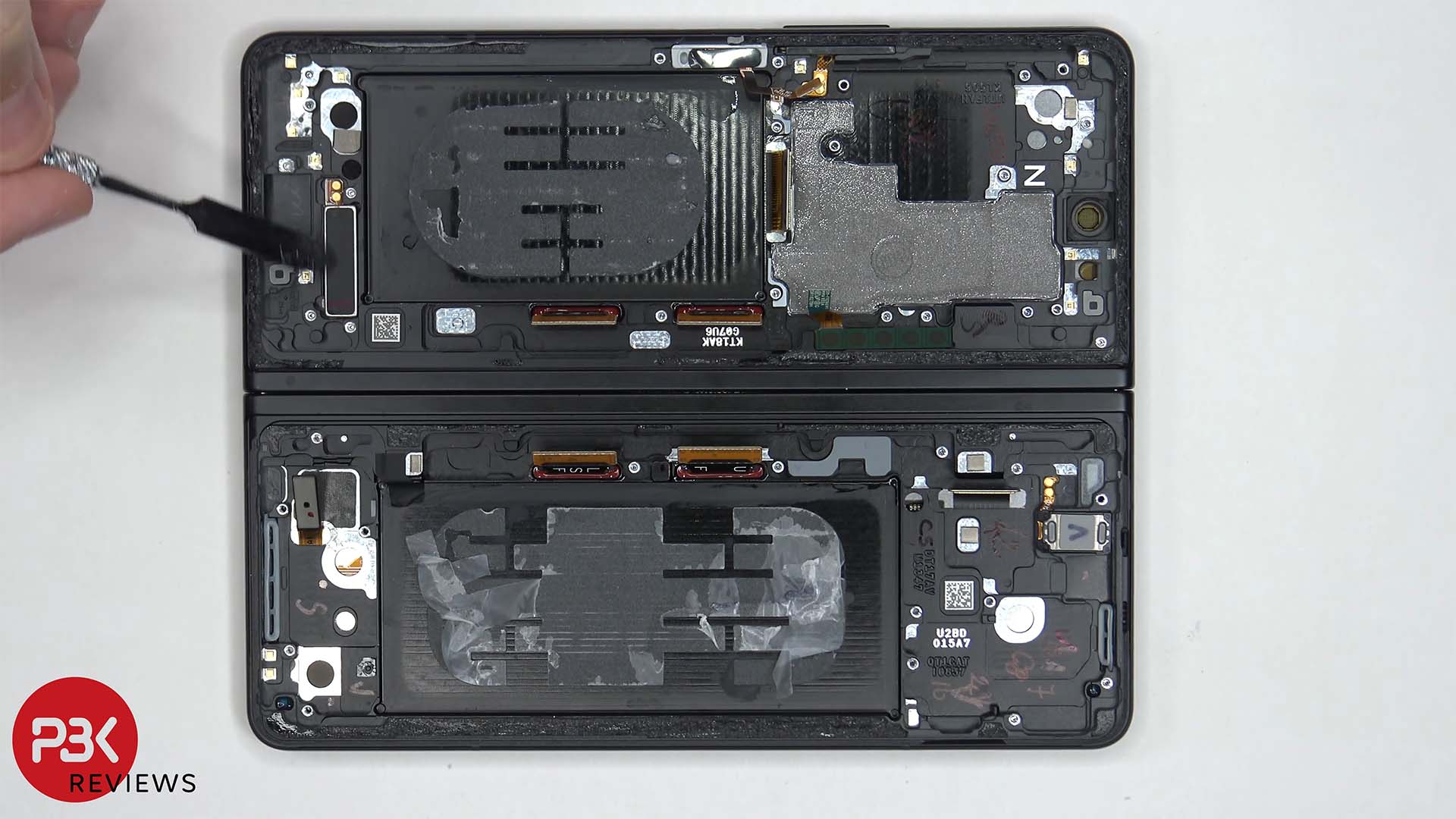
The folks over at PBK Reviews have disassembled the Galaxy Z Fold 3 to check what the phone is made up of and how well its components have been put together. While the video shows the entire process of safely disassembling and reassembling Samsung's latest flagship foldable phone, we wouldn't advise anyone to do this on their own as it is an expensive phone that costs at least $1,800.
The 11-minute video starts off by removing the phone's nano-SIM card tray. To remove the Gorilla Glass Victus back of the phone, one needs to apply some heat so that the adhesive can be loosened and the back can then be removed using a pry tool. The back has a flex cable for the secondary microphone. The same process can be used to disassemble the cover display. However, you need to carefully remove the display cable that is attached to the PCB and protected under a plastic bracket.
To reveal the PCB that's placed below the cover display, you need to remove 14 Philips screws and then remove the top covers. One of those top covers includes the speaker. The SIM card reader can be disconnected and removed as well. After removing four more flex cables and a coaxial, the PCB can be removed. This PCB houses a 10MP selfie camera and a proximity sensor. This part of the phone also houses the second speaker.
Similar to all foldable phones from Samsung, the Galaxy Z Fold 3 has two batteries, one placed in each half of the phone. This new phone has two batteries (2,280mAh and 2,120mAh), totaling a battery capacity of 4,400mAh (typical). You need to use isopropyl alcohol before prying open the batteries. Both batteries are covered by graphite pads and most of the device openings are protected by rubber gaskets.
The other side of the phone has 21 Philips screws to open before you can remove the second battery. Moreover, the battery is covered by the Qi wireless charging coil. After removing some flex cables, covers, NFC sensor, and mmWave 5G antenna, the main PCB and the sub-PCB can be removed as well. The video also shows the phone's under-panel 4MP selfie camera.
The main PCB has a multi-layer design, and it houses the three rear cameras, the Snapdragon 888 processor, 12GB RAM, and 256GB/512GB storage. The chipset and memory are covered by thermal paste and graphite layer for efficient heat management. The sub-board has the USB Type-C port, a water damage indicator sticker, and a rubber gasket. The video also shows the placements of the linear haptic feedback motor, side-mounted fingerprint reader, and a way to replace the foldable screen.
The Galaxy Z Fold 3 got a repairability score of 2/10 in the video since there is a lot of adhesive and glue involved, and only experienced people can disassemble it for repairs.
